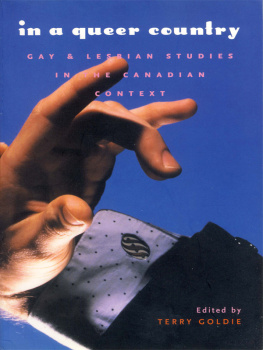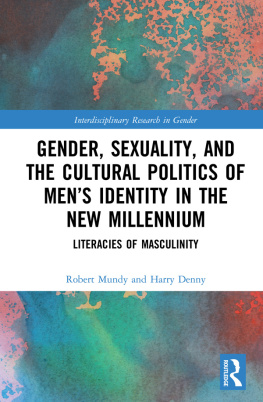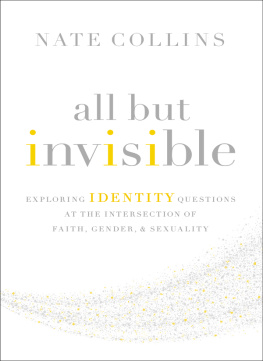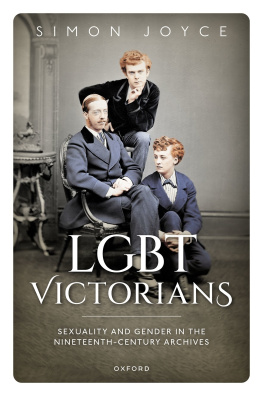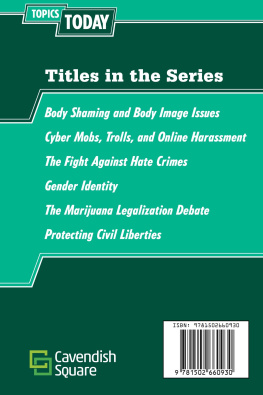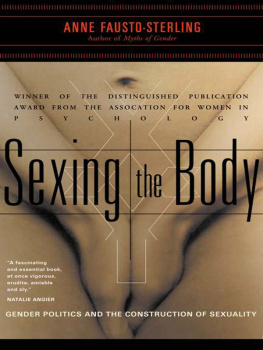Terry Goldie - queersexlife: Autobiographical Notes on Sexuality, Gender and Identity
Here you can read online Terry Goldie - queersexlife: Autobiographical Notes on Sexuality, Gender and Identity full text of the book (entire story) in english for free. Download pdf and epub, get meaning, cover and reviews about this ebook. year: 2008, publisher: Arsenal Pulp Press, genre: Romance novel. Description of the work, (preface) as well as reviews are available. Best literature library LitArk.com created for fans of good reading and offers a wide selection of genres:
Romance novel
Science fiction
Adventure
Detective
Science
History
Home and family
Prose
Art
Politics
Computer
Non-fiction
Religion
Business
Children
Humor
Choose a favorite category and find really read worthwhile books. Enjoy immersion in the world of imagination, feel the emotions of the characters or learn something new for yourself, make an fascinating discovery.

- Book:queersexlife: Autobiographical Notes on Sexuality, Gender and Identity
- Author:
- Publisher:Arsenal Pulp Press
- Genre:
- Year:2008
- Rating:3 / 5
- Favourites:Add to favourites
- Your mark:
- 60
- 1
- 2
- 3
- 4
- 5
queersexlife: Autobiographical Notes on Sexuality, Gender and Identity: summary, description and annotation
We offer to read an annotation, description, summary or preface (depends on what the author of the book "queersexlife: Autobiographical Notes on Sexuality, Gender and Identity" wrote himself). If you haven't found the necessary information about the book — write in the comments, we will try to find it.
Terry Goldie: author's other books
Who wrote queersexlife: Autobiographical Notes on Sexuality, Gender and Identity? Find out the surname, the name of the author of the book and a list of all author's works by series.
queersexlife: Autobiographical Notes on Sexuality, Gender and Identity — read online for free the complete book (whole text) full work
Below is the text of the book, divided by pages. System saving the place of the last page read, allows you to conveniently read the book "queersexlife: Autobiographical Notes on Sexuality, Gender and Identity" online for free, without having to search again every time where you left off. Put a bookmark, and you can go to the page where you finished reading at any time.
Font size:
Interval:
Bookmark:
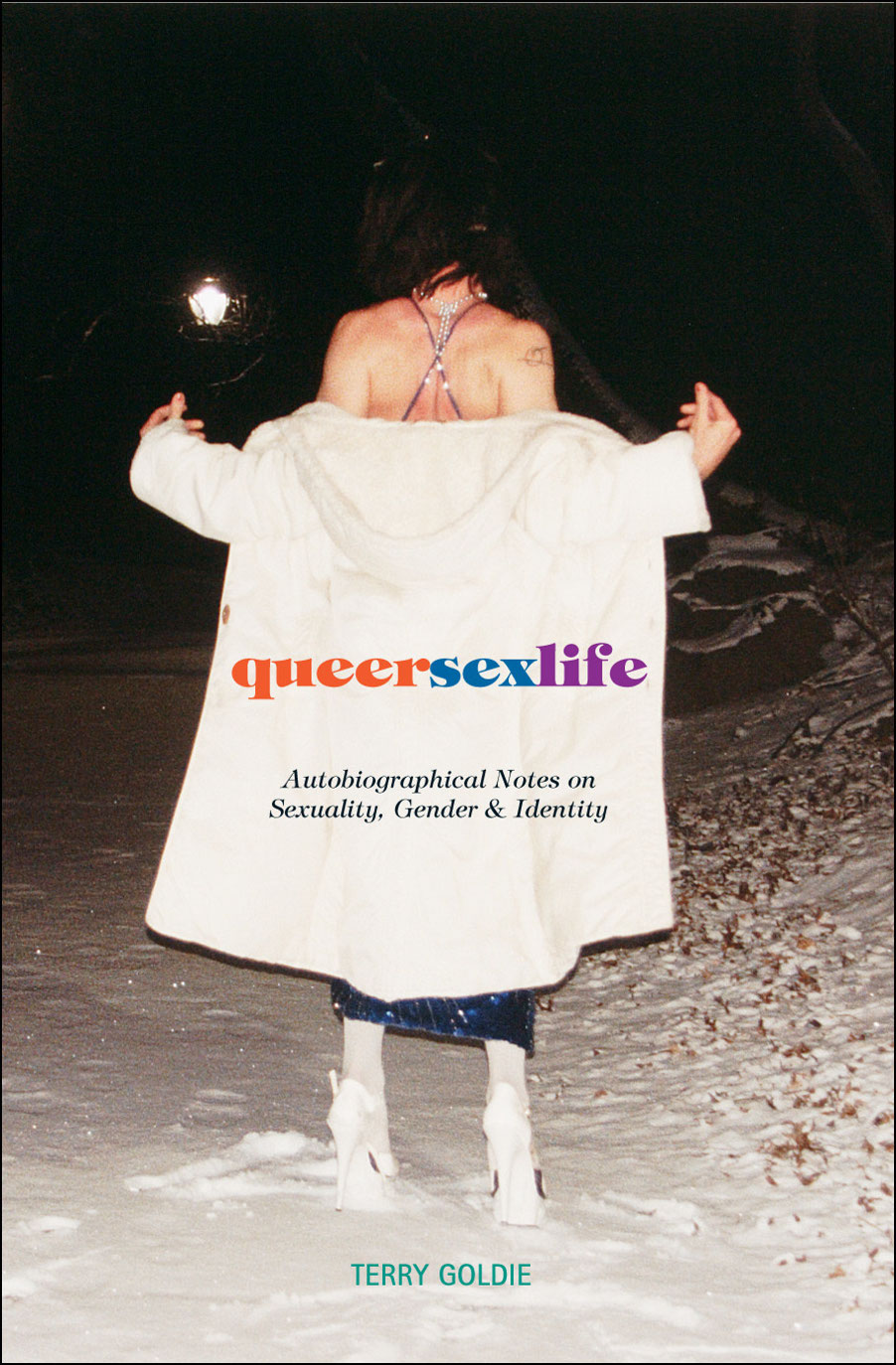
queersexlife
queer sex life
Autobiographical Notes
on Sexuality, Gender and
Identity
TERRY GOLDIE

queersexlife
Copyright 2008 by Terry Goldie
All rights reserved. No part of this book may be reproduced or used in any form by any meansgraphic, electronic or mechanicalwithout the prior written permission of the publisher, except by a reviewer, who may use brief excerpts in a review, or in the case of photocopying in Canada, a license from Access Copyright.
ARSENAL PULP PRESS
#101-211 East Georgia St.
Vancouver, BC
Canada V6A 1Z6
arsenalpulp.com
The publisher gratefully acknowledges the support of the Canada Council for the Arts and the British Columbia Arts Council for its publishing program, and the Government of Canada through the Book Publishing Industry Development Program and the Government of British Columbia through the Book Publishing Tax Credit Program for its publishing activities.
Book design by Shyla Seller
Editing by Robert Ballantyne and Brian Lam
Cover photograph: Joe OvelmanSnow Queen (7) copyright Joe Ovelman,
courtesy Conner Contemporary Art, Washington, DC.
Printed and bound in Canada
Library and Archives Canada Cataloguing in Publication:
Goldie, Terry
Queersexlife : autobiographical notes on sexuality, gender & identity / Terry Goldie.
Includes bibliographical references and index.
ISBN 978-1-55152-236-4
EISBN 978-1-55152-277-7
1. Homosexuality. 2. Gender identity. 3. GaysIdentity. 4. Sex (Psychology). 5. Goldie, Terry. 6. GaysCanadaBiography. I. Title.
HQ75.8.G65A3 2008 306.766 C2008-901856-7
I had thought of dedicating this to my various lovers, but then I thought that some might not appreciate it. So instead I dedicate it to someone who has never been a lover but always a friendand a wonderful colleague: Michael Hurley.
Parts of Dragging Feminism? appeared in Dragging Out the Queen, Revealing Male Bodies, edited by Nancy Tuana et al (Indiana: Indiana University Press, 2002), 125-1ffl.
Thanks to Robert Ballantyne, always a committed and supportive editor; to Brian Lam for many forms of assistance, not least with my prose; to David Coodin for checking the quotations; to Stephanie Hart and Jeff Lloyd for library searches; to Beatrix Thomasi and Pamela Lewis for the drag photographs, and to Deanne Williams, first reader of the manuscript.
And to skinny white girl. Always to skinny white girl.
I dont think Im trying to create a neologism with the title of this book, but rather a melding of three words to represent how those things have jammed together in my experience. The last two parts do not need much explanation: this is my view of sex from the vantage point of my life, my life according to its sexual experience. On the other hand, I think queer needs some elucidation.
Gentle reader, you might be sick of explanations of the term queer. While almost anyone who is a part of the panoply of sexual diversities will be happy that sexual freedom has advanced considerably in the last forty years, some of us might be less pleased that queer has developed with it, along with endless discussions of its meaning. Like participants in other twentieth-century liberation movements, homosexual activists embraced labels that had previously been used to attack them, from the Radical Faeries to Dykes on Bikes; the most ubiquitous example today is queer. Two prominent contemporary usages by the homosexual community are in Queer Nation, the sexual radical in opposition to social norms, and in queer theory, an intellectual position that acclaims the ultimate instability of all received assumptions about gender and sexuality. As I note in the chapter on bisexuality, Jonathan Dollimore worries that this can turn into facile postmodernism. (14)
A quick perusal of the Oxford English Dictionary suggests the base of the word. The earliest example comes from 1508: Heir cumis our awin queir Clerk. In other words, queer as strange or slightly off. Then from 1561, A Quire bird is one that came lately out of prison. 1740 provides Instead of returning the good Guinea again, they used to give a Queer One. The earliest usage that specifies a homosexual meaning is from 1922, noted as coming from the delightfully named The Practical Value of Scientific Study of Juvenile Delinquents (Childrens Bureau, US Department of Labor): A young man, easily ascertainable to be unusually fine in other characteristics, is probably queer in sex tendency.
I am uncomfortable applying to myself the recent meanings of queer. I dont consider myself in opposition to society, but rather I am afraid that I am in most ways insufferably bourgeois. On the other hand, perhaps my identity in some ways flirts with the facile postmodern. I dont like this thought, but whenever I assert an identity I always think of it as a relative category rather than an absolute. Thus I am gay not because this is the essence of my being, but because I view myself as more homosexual than those who are not gay. On the other hand, the earlier dictionary meanings of queer strike me as perfectly suitable to who I think I am. I know that I have always been considered by others to be a rather different person, some kind of queir Clerk. While I have luckily never been imprisoned, various people have suggested that I have come from some alien place and thus am a Quire bird. Both gay and straight have suggested that I am somehow counterfeit, deceiving the world in claiming to be part of either group. I cherish the day when two women asserted, hours apart, that You have always looked like a fag, and You arent really gay, you know. Neither seemed to think I was the good Guinea, although the latter believed I was not the good Guinea because I claimed not to be the good Guinea. And as I note below, my greatest interest in this book is my own sex tendency.
This of course raises the question of why should my greatest interest be of interest to you? The answer is primarily to provide a specific focus to the discussion. K.M. Colby says of the autobiographical I:
I can thus refer to an observed or an observer. (Naturally, an observer cannot observe itself but must be taken for granted by transcendental argument.) Introspection of what is referred to as I is a process of retrospection, i.e., inspection of something which has already been produced by a preceding cycle of mental activity. It can be reacted to in the next cycle like any other content of awareness. (Stoller 233)
Colbys argument is a bit opaque, primarily because the process is as well. The observer cannot be the observed. Thus the transcendental argument is that someone must be doing the observing in order for observation to happen, but in order to avoid a perpetual mise en abme, the observer must be taken for granted. Even if there is a chain of observers, the final one must be accepted without dissection. If the observer and the observed are the same person then the separation is accomplished by retrospection. The observer and the observed are not the same because the observer observes who the observed was in the past, although that past might be seconds before. My argument here is that even if this is the case, retrospection approximates combining the observed and the observer, in a fashion particularly suitable when the observer is attempting an analysis of the sexual experiences of the observed.
Font size:
Interval:
Bookmark:
Similar books «queersexlife: Autobiographical Notes on Sexuality, Gender and Identity»
Look at similar books to queersexlife: Autobiographical Notes on Sexuality, Gender and Identity. We have selected literature similar in name and meaning in the hope of providing readers with more options to find new, interesting, not yet read works.
Discussion, reviews of the book queersexlife: Autobiographical Notes on Sexuality, Gender and Identity and just readers' own opinions. Leave your comments, write what you think about the work, its meaning or the main characters. Specify what exactly you liked and what you didn't like, and why you think so.

